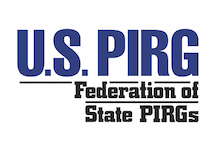USPIRG & CDD urge Regulatory Safeguards for Online Lending Industry

The Center for Digital Democracy (CDD) and the U.S Public Interest Research Group (USPIRG) filed comments today in response to the Treasury Department’s request for information (RFI) on “Expanding Access to Credit through Online Marketplace Lending.” Specifically, the department sought public comment on (1) the various business models of and products offered by online marketplace lenders to small businesses and consumers; (2) the potential for online marketplace lending to expand access to credit to historically underserved market segments; and (3) how the financial regulatory framework should evolve to support the safe growth of this industry.”
CDD/USPIRG’s detailed comments cautioned that “the ‘technology-enabled credit provisioning’ marketplace should not be uncritically viewed as a panacea, especially for financially underserved and economically at-risk Americans.” Rather than giving online lenders special treatment, in fact, the filing calls on the Department of the Treasury “to work with other agencies to propose or implement rules that integrate the online lending sector within the financial services regulatory sector.” Pointing out that instead of “being a new source that can support the needs of low-income or underbanked consumers,” the majority of online loans are actually going to “consumers who already have ‘prime’ ratings.” CDD and USPIRG believe that the entire financial services sector—and its use of Big Data to assess and “score” consumers—warrants closer regulatory scrutiny.
“Marketplace lending should be regulated by prudential and consumer protection regulators in the same way that other financial services are,” the filing concludes, “with CFPB authority where appropriate for banks and non-banks and meaningful consumer and prudential supervision by other responsible regulators. Certainly, the lessons of 2008 provide a strong warning against allowing an under-regulated, shadow banking system to grow and pose risks to the financial system, its safety net, or the overall economy.”

